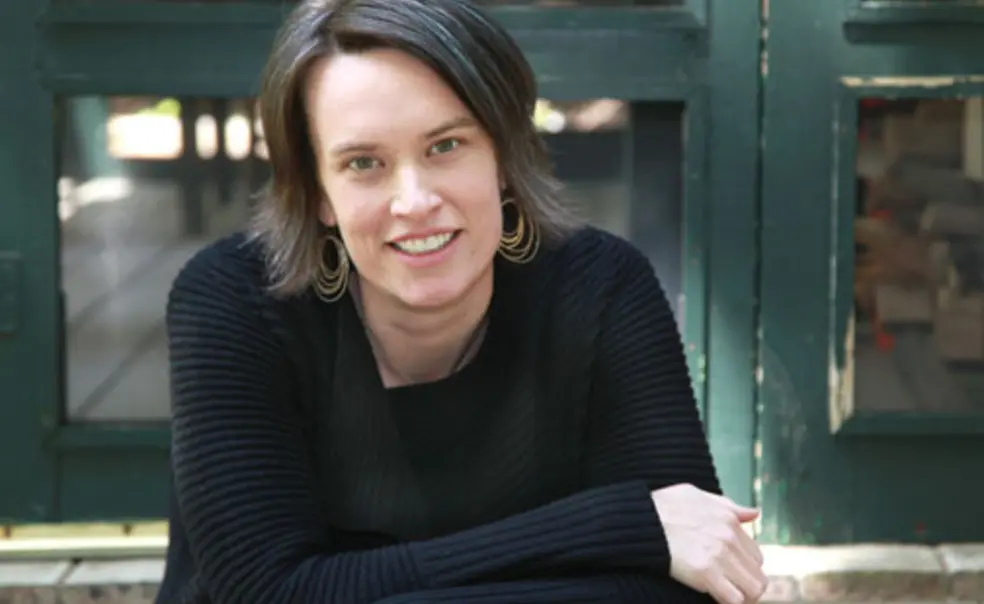Alumni Profile: Deborah Salem Smith '96, a playwright who probes gray areas
Résumé: Playwright-in-residence, Trinity Repertory Company, Providence, R.I. Adjunct faculty, Brown University/ Trinity M.F.A. program. Majored in art and archaeology.
GRAY ZONES Deborah Salem Smith ’96 writes plays about gray zones — “the grayest of the gray,” she says — where there is no single truth, only truths; some contradictory, all valid. Her subjects are pressing social issues for which there are no easy solutions. In her 2008 work, Some Things Are Private, she probed the dividing line between art and pornography. Smith created a fictional character, Kramer, who debates and challenges an actress portraying the real-life photographer Sally Mann over the prurience of Mann’s photos of her naked children. Who gets to say whether the pictures were indecent or beautiful? Smith’s latest play, Love Alone, pits the relatives of a patient who died during a minor procedure against the doctor who performed the operation. The family sues. The doctor admits to mistakes. But the characters don’t get the justice or closure they’re seeking. The play premiered in March at Trinity Repertory Company in Providence, R.I.
BORN TO THE THEATER Smith went to Princeton expecting to become a poet or a painter. But she took a class with famed South African playwright Athol Fugard, who told her that playwriting is the art of combining painting and poetry. “You’re a playwright,” he told her. “That’s what you should be doing.” She wasn’t convinced, and headed to the University of Michigan to get her master’s degree in poetry. Her thesis adviser noticed that her poetry contained a lot of dialogue. “You’re a playwright,” she told Smith. This time, she listened.
MEDICAL MISTAKES Smith got the idea for Love Alone while her partner, Christine Montross, was doing her residency in psychiatry at Brown University. She saw the immense pressure Montross and her fellow doctors were under to avoid mistakes, even though day-to-day medical decisions rely heavily on intuition. “You’re constantly under the threat of a lawsuit if you get it wrong,” Smith says. Montross’ father is a lawyer who handles malpractice cases. From him, Smith heard about reckless doctors whose mistakes were covered up by their hospitals. Don’t assume you wouldn’t sue if something like that happened to you, he told Smith. “You don’t know who you are,” he said, “until it’s your tragedy.” Love Alone runs through May 27.












No responses yet